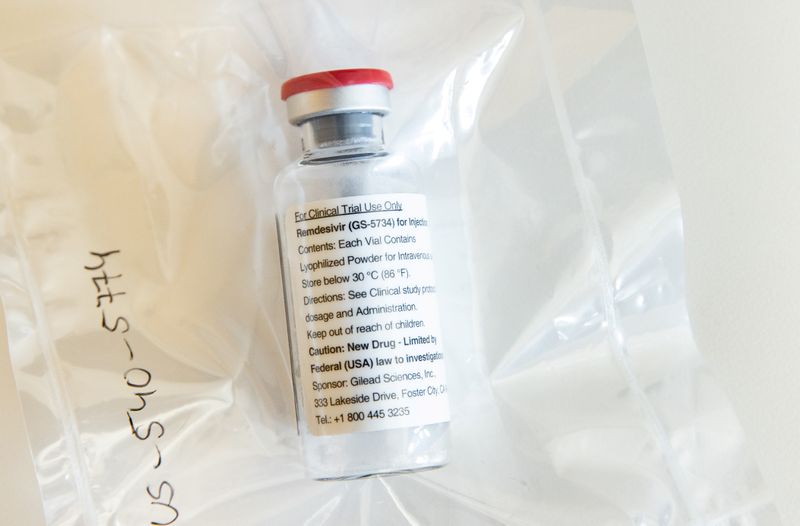By Francesco Guarascio
BRUSSELS (Reuters) - France has expanded its list of drugs that face export restrictions through the coronavirus crisis despite repeated calls from the European Union to lift curbs that could cause shortages in other countries, documents show.
The further clampdown on exports was adopted two days before EU leaders hold a conference call on Thursday meant to strengthen financial solidarity across the bloc in the fight against the pandemic and preserve its common market, which is based on free movement of goods.
The European Commission sent a letter on April 7 to the French government urging it to lift export restrictions on dozens of vital medicines to treat coronavirus patients, EU officials told Reuters.
But instead of heeding the call, Paris has vastly extended the list of drugs covered by restrictions, according to a letter seen by Reuters that was sent by the French drugs regulator ANSM to pharmaceutical distributors on April 21.
The temporary restrictions apply to those distributors. Manufacturers, such as French pharmaceuticals giant Sanofi (PA:SASY), are exempted from the export curbs.
The French prime minister's office, the health ministry and the drugs regulator did not answer requests for comment.
One industry source with direct knowledge of the matter said the French restrictions were aimed at preventing distributors from selling drugs abroad at higher prices during a severe outbreak of COVID-19, the disease cased by the virus, at home.
Among drugs that distributors cannot export from France are antibiotics, painkillers, sedatives and muscle relaxants, as well as several drugs being tested as possible treatments for COVID-19, including remdesivir, hydroxychloroquine, lopinavir and ritonavir, ANSM lists show.
The curbs also apply to insulin, which is vital to millions of people with diabetes across Europe.
Several of the affected medicines are not in short supply in France, but are in some other EU states.
That is the case, for instance, with atracurium and rocuronium, two muscle relaxants used to connect critically ill COVID-19 patients to ventilators.
Italy, the Netherlands, and Belgium were among EU nations that warned these two drugs could soon no longer be available in their countries, according to an EU internal list of medicines in shortage, dated April 1 and seen by Reuters.
LEGAL ACTION?
A spokeswoman for the European Commission told Reuters on Thursday France was among the few EU countries that had ignored calls to lift certain trade barriers on medicines.
She said talks were underway to persuade France, a key hub for drugs distribution across Europe, to remove "disproportionate" restrictions. If no compromise is reached, the Commission could take legal action against Paris, she said.
Half of EU states have drawn up long lists of drugs whose export has been curbed during the coronavirus emergency..
The Commission has repeatedly said these measures, which vary from fully-fledged bans to requirements for export authorisations, risk causing shortages in other countries of the 27-nation bloc.
It sent letters to France, Poland, Latvia, Romania, Slovakia, Hungary and other central-eastern European countries urging them to remove barriers "that could hamper our collective ability to respond to the coronavirus outbreak effectively," according to an EU document seen by Reuters.
Some eastern states have partly heeded the EU calls, three EU officials said, citing Poland and Slovakia among countries that have removed some restrictions.
France, the EU's second-largest economy, caused an outcry from EU partners in early March when it decided to curb exports of personal protection gear, such as face masks.
The measure was judged by Brussels as legal because sales abroad were still allowed if pre-authorised, but that triggered similar moves by other EU states, leading to delays and exacerbating the shortage of protective gear across Europe.

Germany also initially banned the export of protective equipment, but after EU pressure removed restrictions.